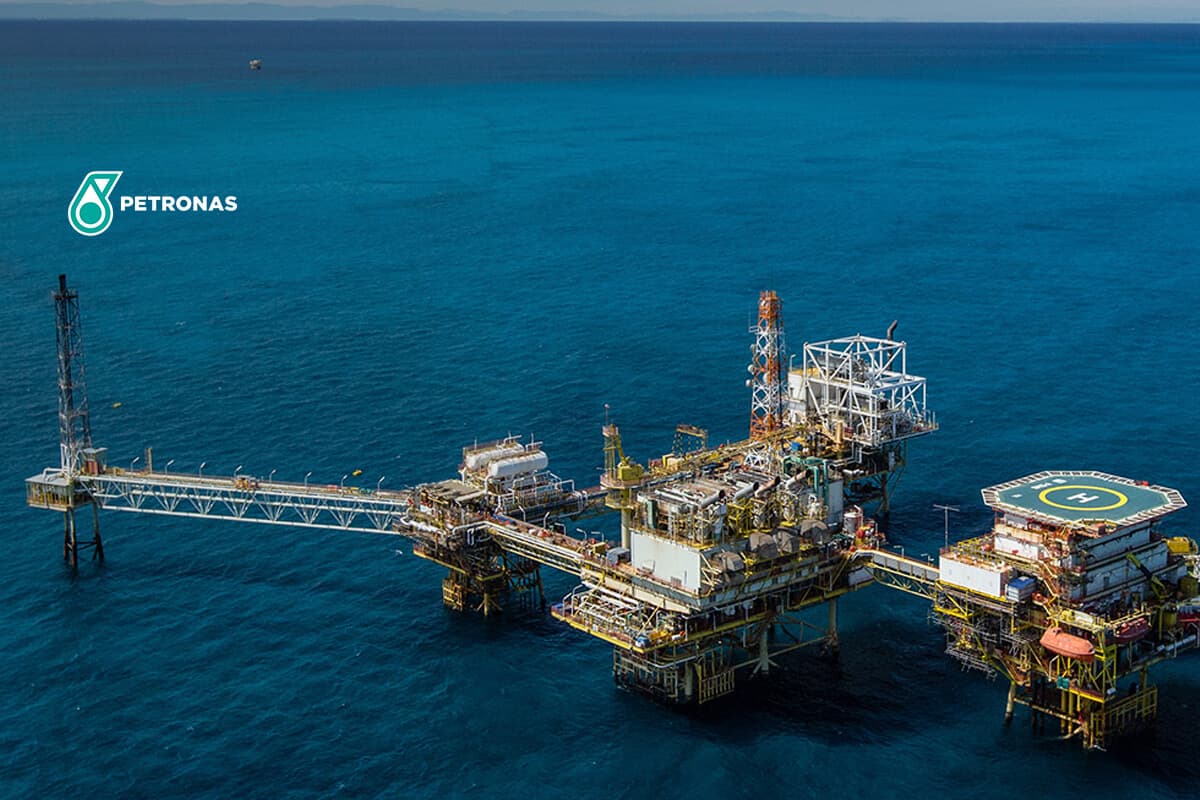
KUALA LUMPUR (Feb 26): Petroliam Nasional Bhd (Petronas) posted its first-ever annual loss of RM21 billion for the financial year ended Dec 31, 2020 (FY20), dragged down by a RM31.5 billion impairment charged on assets.
In comparison, a profit after tax (PAT) of RM40.5 billion was recorded in FY19.
Excluding the impairment, Petronas posted net profit of RM10.5 billion, a 78% decline from RM48.8 million in FY19. It is worth noting that the group's earnings before interest, tax, depreciation and amortisation (EBITDA) remained strong at RM55.3 billion.
Petronas' annual revenue shrank nearly 26% to RM178.7 billion from RM240.3 billion in FY19, amid plummeting oil prices along with demand disruptions during the year resulting in lower sales volume from processed gas, petroleum products and liquefied natural gas.
The average oil prices were around US$42 per barrel in 2020 — the lowest since 2004 — compared with US$64.30 in 2019.
However, the group pointed out that the drop in Petronas’ revenue was the lowest among the international oil majors.
For the fourth quarter ended Dec 31, 2020 (4QFY20), the national oil firm reported a net loss of RM1.1 billion due to RM1.3 billion impairment loss on assets, compared with a PAT of RM4.1 billion in the previous corresponding quarter.
Petronas president and group chief executive officer Tengku Muhammad Taufik Aziz said the group has weathered the toughest period in its history, and anticipates that the oil and gas industry will still be impacted by uncertainties over the impact of the coronavirus pandemic.
He said the impairment was the biggest taken by the oil major to date.
"Notwithstanding this, the group remains committed to undertake all the necessary measures in our path to recovery while ensuring the safety of our people and minimal disruption to our business.
"We are focused on our tactical interventions towards preserving value and continue to pursue customer-centric solutions," he said in a statement today.
In response to the adverse effects of reduced demand and lower oil prices, Taufik said the group has been focused on cost compression, fiscal discipline and higher productivity to ensure its business' resiliency and sustainability.
As a result, Petronas has managed to lower its costs incurred during the year (excluding impairment) to RM172.7 billion compared to RM197.3 billion in the previous financial year.
It exceeded the cost targets set in May 2020 which was to reduce operational expenditure (opex) and capital expenditure (capex) by 12% and 21% respectively.
In terms of capex targets, Taufik said Petronas is guiding for a total of between RM40 billion and RM45 billion over the next five years, with 9% of this year’s allocation to go towards new energy initiatives, higher than the 5% allocation last year.
The capex for the year will be split on a 55:45 basis between domestic and international investments.
He added that the national oil firm is committed to creating and providing cleaner energy, as per its pledge for net-zero emissions by year 2050.
Last year, the group, via its new energy unit Amplus Energy Solutions, increased its total solar energy capacity in Malaysia to 90MWp (mega-watt peak).
Its total capacity in India and Southeast Asia increased to 800MWp, following Amplus’ acquisition of two of ACME Solar's projects. ACME Solar is the largest solar developer in India.
Looking forward, Petronas said the outlook of the industry remains uncertain and challenging with modest recovery in demand and prices as the Covid-19 impact continues.
As such, it said the group remains cautiously optimistic and is looking to future-proof its portfolio by venturing into new energy spaces and pursuing innovation with focused execution.
"The group remains confident that its efforts and continued focus on commercial and operational excellence while preserving healthy levels of liquidity will ensure its business sustainability.
We are also charting the growth pathway to secure new opportunities amidst the acceleration in energy transition, especially from new and non-traditional areas. Although gas remains a crucial and cleaner source of fuel, diversification into renewable energy is imperative, with having the right skills and capabilities in place as part of the group’s retooling human capital effort," it added.